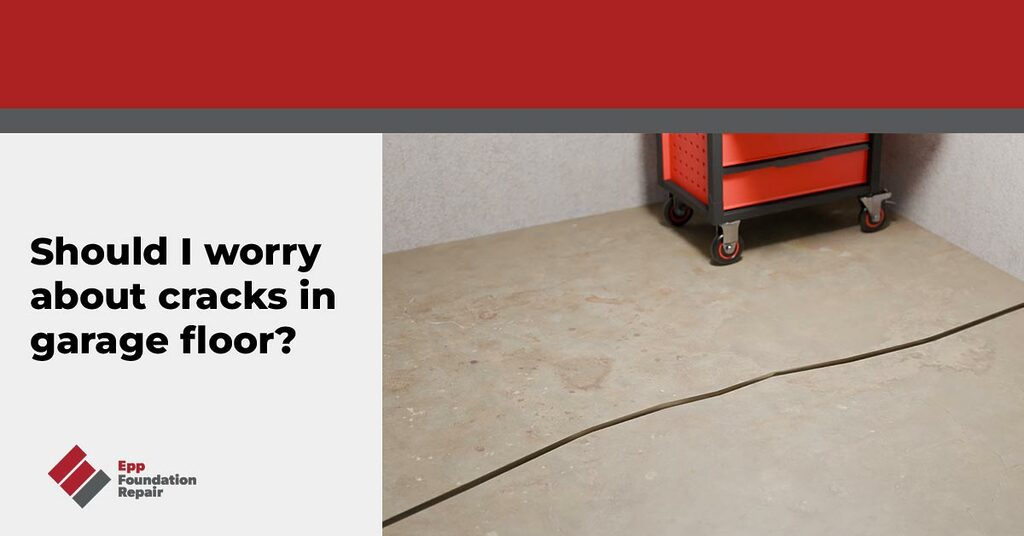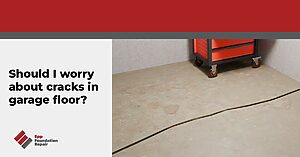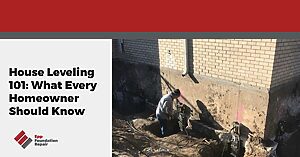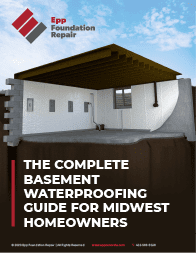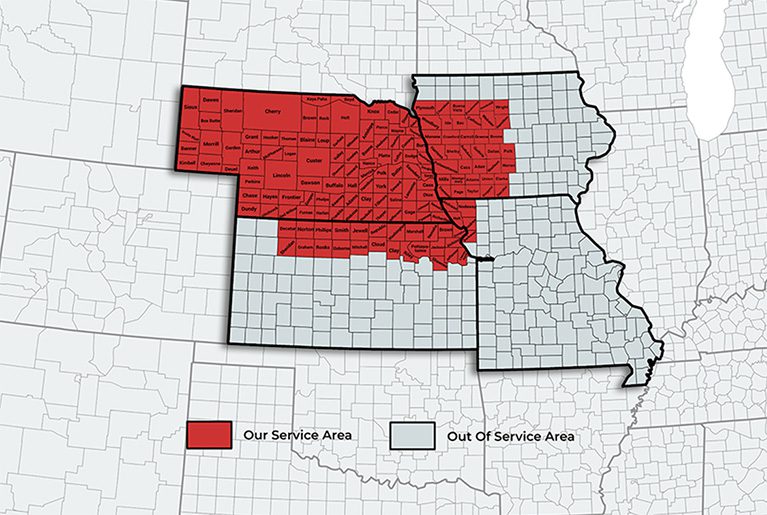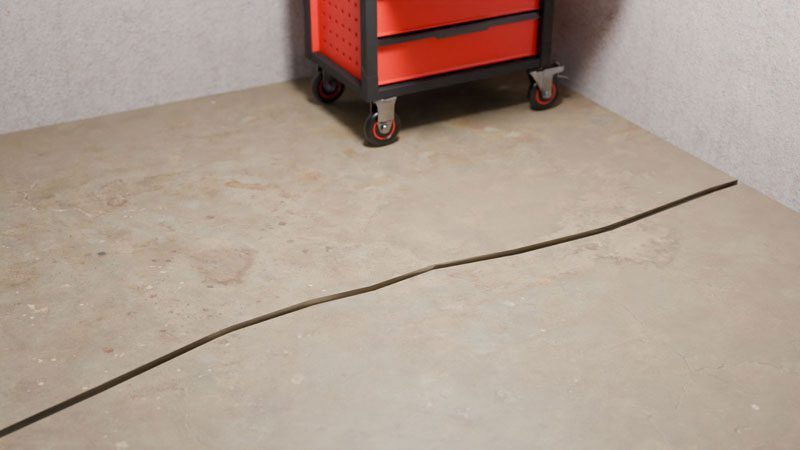
If you are reading this article, you likely have a crack in your garage floor that you are trying to assess for seriousness. Let us reassure you that not all cracks in a garage floor are serious. But how do we know which are which? Keep reading to learn about the different types of cracks in garage floors, their causes, when you should worry, and how to fix them.
Are Cracks in Concrete Garage Floors Common?
Cracks in garage floors are very common occurrences and, in many cases, are simply unsightly, often caused by shrinkage during the concrete curing process. Cracks in concrete garage floors can occur in both older and newer homes.
Common Causes of Cracks in Garage Floors
- Age
Concrete expands and contracts over time due to temperature fluctuations. The older your garage floor is, the more likely it will crack. - Shrinkage
When concrete cures after pouring, the slab shrinks. This shrinking process commonly causes hairline cracks along the surface of the slab. - Extreme Weather
Some causes of cracking, like earthquakes, tornadoes, or flooding, are evident. But less subtle causes like extreme cold can cause the soil beneath your garage to expand and create cracks. - Poor Construction
Unfortunately, not all building companies follow the best industry practices, resulting in inferior workmanship. Some problems include:- Insufficient joints: Joints, the purposefully made gaps within a concrete slab, are designed to allow the concrete to move without cracking or at least control it. If there are not enough joints, your garage floor will likely crack.
- Improperly prepared soil: This can cause a garage floor to settle and crack.
- Insufficient curing time: If a heavy load is placed on the concrete before it is fully cured, it will crack.
- Improper trowelling: If the concrete is not smoothed out correctly, the top layer will dry out too fast and create hairline cracks across the floor, called crazing. These crazing cracks resemble an irregular honeycomb pattern or a cracked desert floor.
- Insufficiently covered rebar: If this occurs, you will likely see parallel or perpendicular hairline cracks and rusting about one to two feet apart.
- Foundation Settlement
If your garage floor is connected to the perimeter of the garage’s foundation and the foundation settles, the floor could crack. This isn’t actually an issue with the garage floor itself, but a serious structural issue with the garage’s foundation.
For more information see Garage Foundation Repair
How Can You Tell What Caused the Crack in Your Garage Floor?
So, was the crack caused by something like shrinkage or an insufficient number of joints, or something more serious like a problem with the garage’s foundation? Here are some things to look out for:
- Step 1: Measure the width and height of the crack.
If the crack is less than 1/8 of an inch wide, it is considered a hairline crack and is usually not a reason for alarm. However, if your garage floor is badly cracked, meaning the crack is wider than 1/8 of an inch, one part is wider than the rest, or one part of the crack is raised, there could be a structural concern. - Step 2: Analyze the size and location of the crack.
- If the crack follows a straight line or pattern, it may follow along a control joint, which is entirely normal.
- If you notice some rusting, the crack may be related to the rebar underneath and will need repair. But it is unlikely to be a structural issue.
- If the crack is isolated and does not affect any of the walls, it may have been caused by shrinkage or aging.
- If the crack is irregular in size and spreads across the entire floor or stretches up a wall, this is likely a structural problem.
- Step 3: Monitor the crack.
Monitor the cracks in your garage floor. If they grow over time, this is usually a sign of structural damage. - Step 4: Check for other red flags.
If you suspect structural damage, check your garage for some of these red flags:- Sloping floors
- Difficulty opening doors or windows
- Pooling water
- Sagging roof
- Cracks in walls, steps, siding, and the foundation
- Step 5: Seek professional advice.
If you are unsure what could be causing the crack in your garage floor, call a professional foundational repair company. It is always better to err on the side of caution and to catch any problems early.
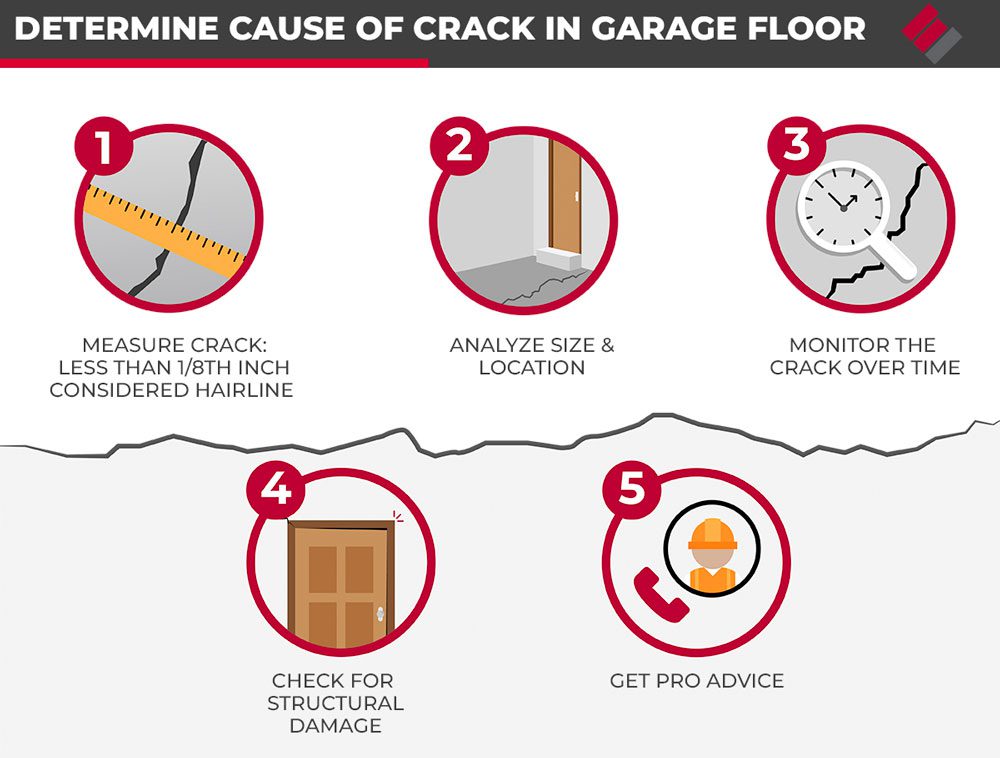
When Should You Worry About the Crack in Your Garage Floor?
You should worry about cracks caused by serious structural problems with either the garage floor itself or the garage’s foundation. The only way to know for sure if you have one of these cracks is to contact a foundation repair contractor and ask for an inspection.
How Do You Fix a Crack in Your Garage Floor?
Fixing Non-Structural Cracks
If the cracks in your garage floor were caused by shrinkage during the concrete curing process (very common), you may repair them using epoxy or polyurethane injections. These sandable injections repair cracks, reinforce the concrete and prevent water penetration.
Fixing Structural Cracks
If your garage’s foundation is experiencing settlement, you may need foundation underpinning. If the settlement was caused by excessive moisture in the ground around the foundation, you may need a drain tile system. A foundation repair expert will be able to determine the best solution.
How Do You Prevent Cracks in Your Garage Floor?
If you plan to build a new garage, pick a reputable builder. Most problems can be avoided by properly preparing the soil and using best building practices.
To maintain a crack-free garage, do your best to protect the integrity of your foundation and garage floor. For more information, see Concrete Garage Floor Crack Repair.
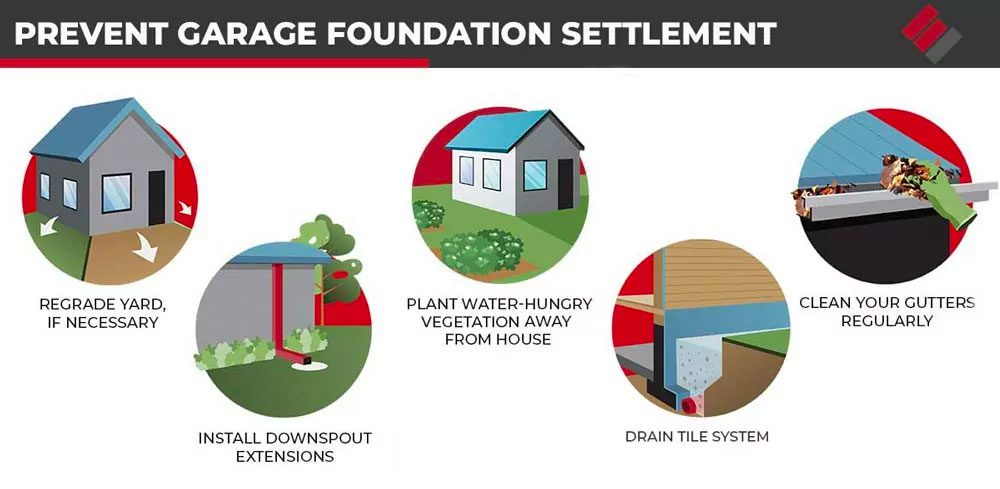
Contact us today for a professional assessment of the crack in your garage floor and any other concrete repair needs. We serve areas in Nebraska, Iowa, Kansas, and Missouri.

